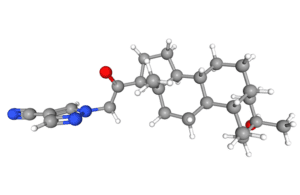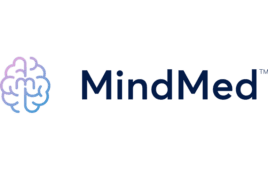
[Zuranolone image courtesy of PubChem]
The drug candidate could be a novel 14-day oral medication to treat Major Depressive Disorders (MDD) or postpartum depression (PPD). Priority review has been granted and the application is slated to be processed by August 5, 2023.
LANDSCAPE and NEST programs
In their FDA filing, Biogen and Sage have shared data from the LANDSCAPE and NEST clinical development programs and a Phase 2 study conducted by Shionogi Japan.
The LANDSCAPE program contains five studies on zuranolone for adults with MDD, while the NEST program has two studies investigating the drug for adult women with PPD.
In clinical trials, patients with MDD and PPD showed efficacy with zuranolone in as few as three days. In contrast, those beginning a course of traditional antidepressants must wait for several weeks to assess their effectiveness.
The most common adverse events associated with the drug include headache, dizziness, nausea and drowsiness.
Although a variety of treatments are available, depression continues to be a widespread condition with significant unmet medical need. More than 21 million Americans experienced at least one major depression episode in 2020. Additionally, nearly 14 million people were diagnosed with MDD.
GABA modulator
Zuranolone is a positive allosteric modulator of GABA-A receptors.
The GABA system plays a central role in inhibitory signaling in the brain and central nervous system. The system helps maintain and regulate brain function.
Researchers have hypothesized that GABA disruption is associated with the development of depression. The 2011 research paper published in Molecular Psychiatry notes that there is a growing evidence linking MDD and GABAergic deficits.
Biogen entered into a $3 billion licensing agreement with Sage. The deal included zuranolone (SAGE-217) and SAGE-324, which is aimed at treating essential tremor and other neurological diseases. Both drugs target the GABA-A receptor pathway.
Filed Under: Drug Discovery and Development, Psychiatric/psychotropic drugs





Tell Us What You Think!
You must be logged in to post a comment.